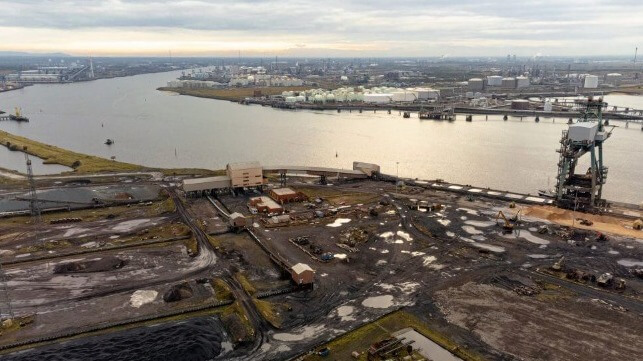BP Plans 500 MW Green Hydrogen Plant in Teesside, UK

Oil supermajor BP announced Monday that it is planning to build a large-scale green hydrogen plant on a site in Teesside, UK, in the country's industrial north.
BP says that it will build out the facility in phases, starting with 60 MW worth of capacity by 2025. It hopes to eventually install up to 500 MW of green H2 production further down the road. A final investment decision is scheduled for 2023.
The first customer for the plant could be fuel-cell powered heavy trucks, BP VP of Hydrogen Matt Williamson told Recharge. The oil company is partnering with truck maker Daimler to build a network of hydrogen fueling stations around the UK, and the 60 MW hydrogen plant will supply enough fuel to support about 1,300 trucks. When it comes online, it will be the largest electrolyzer plant in the UK.
Green hydrogen-based fuels are among the most promising and scalable options for decarbonizing shipping, and multiple companies - primarily in Australia - are looking at options to expand green H2 production to supply future bunker fuels.
Blue next door
BP also has a larger (and more controversial) "blue" natural gas to hydrogen plant planned for Teesside, with a planned 1 GW of capacity.
Blue hydrogen is made by processing natural gas with oxygen or steam, followed by separation and storage of the resulting CO2. BP's plant will capture and send for storage about two million tonnes of CO2 per year via BP's Northern Endurance Partnership.
As carbon capture technology is not perfectly efficient, roughly 2-10 percent of the CO2 escapes into the atmosphere from the exhaust stream for this production process. Fugitive methane emissions from upstream natural gas production and transportation add to the overall well-to-tank greenhouse gas profile of blue hydrogen.
According to a recently-released study by analysts at Fitch Solutions, "comparing blue against green outlines a key flaw in investing in the hydrogen sector, as blue is significantly more polluting." Fitch expects that the project pipeline for blue H2 "will remain much more constrained than green hydrogen over the coming years, resulting in subdued growth prospects and investment."
